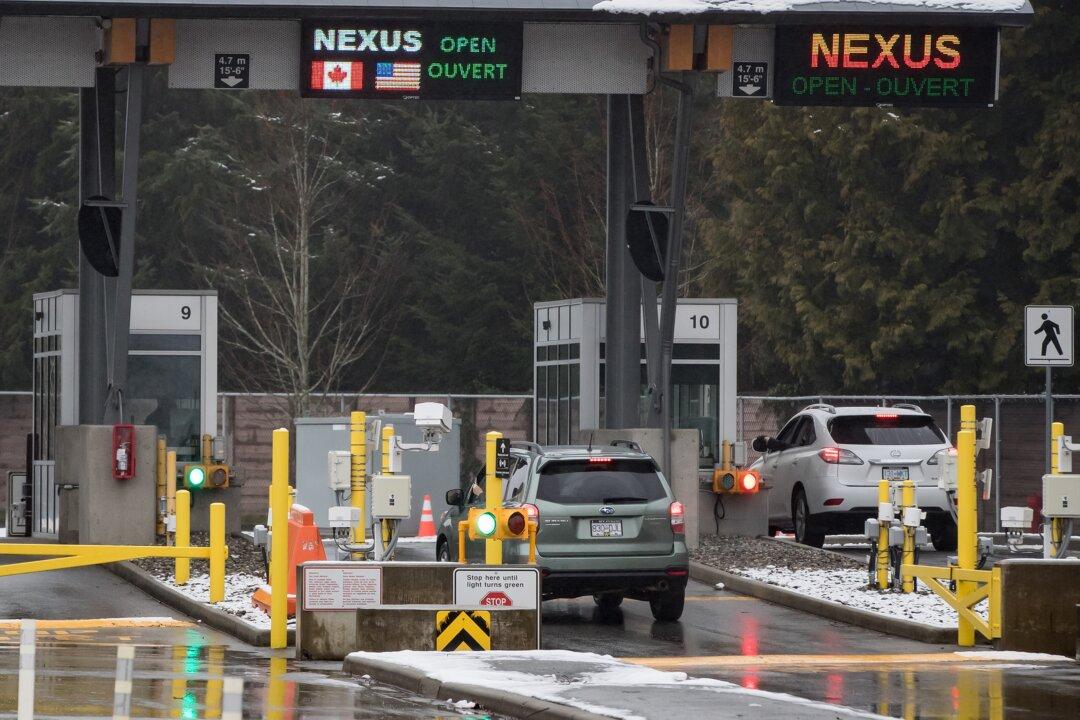Travellers who cross the Canada-U.S. border frequently will have to pay more than double to apply for a Nexus card for speedier clearance starting this October, a federal legal notice recently confirmed.
The cost to enrol in the Nexus trusted-traveller program will increase from US$50 to US$120 effective Oct. 1, Public Safety Canada announced in a notice published in the Canada Gazette on July 3, as first covered by Blacklock’s Reporter.





